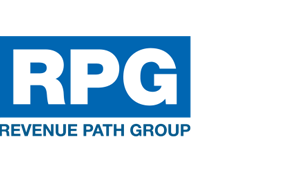Identity Crisis. If They Don’t Know Who You Are, Maybe It’s Because YOU Don’t Know Either?
You can’t expect customers to come to your door if they’re uncertain who you are or what benefits you can bring them, argues Bryan Gray of Revenue Path Group. Lack of a Strong Message – AKA a unique, compelling and consistent value proposition – is one of the Five Great Threats to revenue growth through effective selling.
Say Again, What Do You Do For A Living?
Picture the scene. We’re at the Court of King Arthur. Somebody has decided name badges are a good idea, along with the swords and chain mail. Those badges read “Kevin. Knight In Shining Armor”; or “Cedric. Swineherd”; or “Arthur. King”. Everybody does exactly what it says on the, limited, labels on their tin.
Scroll forward a few centuries. Kids may still dream simple dreams of becoming fire fighters, railroad engineers, nurses and veterinarians. (Some may even long for the day when they are lawyers.) But their parents are experiencing the complexities of the modern business world.
Rushing out the door each day, they grab their work security pass. It confirms they are a “Solutions Architect”, a “Vertical Marketing Specialist” or a “Regional Business Development Lead”. Only a trip to the top of the tallest tower in South East Asia would give enough time for the elevator pitch on how they actually make a living.
Now, step up the complexity from the individual to the entire organization. Could that Solutions Architect, Vertical Marketing Specialist or Regional Business Development Lead tell you, in a single sentence, what their employer sells? With equal brevity, could they explain why customers buy whatever it is from their outfit and not their competitors?
To Explain What It Does On The Label, Would You Need A Very Big Label?
Achieving total clarity of expression of the corporate purpose is one of the biggest challenges facing business today. Global corporations spend billions hiring the best communications brains around. Their task is to distil horrible complexity into memorable messages with real impact.
Make no mistake; this is not about navel gazing and vanity. (You find the true vanity and lack of self-awareness in the corporate speak so many organizations still inflict on their markets.) This is a recognition that everything – including an effective sales operation – flows from a unique, compelling and consistent value proposition.
Once you have that proposition cracked, you have a strong core for your message -wherever and whenever it appears, from advertising to online presence to what your sales people say out in the field. Think of your ideal message as magnetic. Pulling your customers and prospects towards you. Lining your sales team up behind a consistent pitch to the market. Making sure that your external marketing and communications counsel has strong direction.
Does YOUR Sales Message Have “Magnetism”?
To discover whether you already have a magnetic message, you can do a couple of quick and simple experiments. Ask your sales team to write down what they believe they are selling and why they believe customers buy it. Ask some of your customers to state why they buy from you. Do the same exercise yourself. Then look at the results.
If you get a series of strong, single-minded and consistent statements, you likely have a magnetic message in place already. If you get as many different versions as there are respondents in your sample group, your message needs some work.
Of course you could say, “So what if I don’t have this great single-minded message? We still sell stuff. We are still an effective organization.” That’s a legitimate response. BUT … It does not take into account significant risks to your business. Risks that may not hit you today but will surely have an impact over time.
The Message Is Clear and Urgent: Not Having a Clear and Urgent Message Means Serious Risks to Sales
The first risk is the sales relationship hijack. If YOU don’t own your value proposition, then you are leaving it to your sales people to own it instead. If they are inconsistent and unconvincing, you are losing impact in the market. If they are excellent, your business is still at risk. Why? If they believe your customers buy them – and not your unique message – then in reality the sales guys own the customer relationship. What happens if (when) they decide to walk and take that relationship with them?
The second risk is the marketing muddle. If you are not in command of a strong message, your advertising people, your PR, your digital marketers and anybody you involve in promoting your business will very likely do their own thing. They will be marching to their beat, not yours. And, over time, that can only drive inconsistencies, mixed messages and a diluting of your market presence.
The third risk is the competitor-favorable vacuum. While your offer lacks clarity and your profile remains low, or off the radar, competitors will move into the resulting vacuum. And they’ll do it as quickly and vigorously as they can.
The final risk is arguably the most disturbing of all. It is lost market opportunity. Every day, every hour and minute that the impact of your message trails behind the strength and the quality of your offer, you are losing opportunities to make a sale. And that’s damaging your business.
Really Nail What Makes YOU Different and Special. And Start to Nail It TODAY
The bottom line is this: if you have a corporate identity crisis today, you cannot live with it until tomorrow. The risks are just too big. It is time to nail down that unique, compelling and consistent value proposition. Unique – what is it about you that no competitor can touch? Compelling – what is it that makes your message magnetic to the people who matter most to your business growth? Consistent – how do you say what you need to say, strongly and simply every time, so that the impact of your message is always increasing?
The path to value proposition clarity may be tough. It may throw up fundamental questions along the way. Why do you do what you do? What you do? Who do you do it for? You may even, on behalf of your business, have to ask “Who Am I?” But one thing is for sure: unless you have the insight and the confidence to answer that question yourself, nobody (and certainly no customer) will answer it for you.



